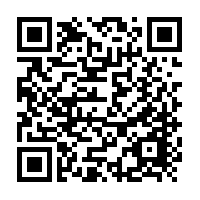They say that variety is the spice of life. They also say that the only way to do great work is to love what you do. Therefore, to keep the professional spark in your eye and keep the fire ablaze it may be a good idea to change the flavor from time to time.
The problem with tastes is, though, that sometimes it’s difficult to account for them. If you feel like looking for new professional flavors or you’ve already developed a liking for one, it might be useful to know how to explain to others how you’ve acquired it.
Check out: How to Explain Your Career Transition
Listen
Glossary
- rejoinder – an answer to a reply; response
- underlying – fundamental; basic
- rupture – the act of breaking or bursting
- embrace – to take or receive gladly or eagerly; accept willingly
- liminal – relating to the point (or threshold) beyond which a sensation becomes too faint to be experienced
- newbie – a newcomer or novice
- apprehensive – uneasy or fearful about something that might happen
- endeavor – a strenuous effort; attempt
Think about it
Answer the questions below.
- What kind of reactions are typical when people decide to have a career change?
- How did Toby Johnson manage to connect her military experience with the requirements of her new career path?
- How did John Davidow avoid creating a rupture in his professional life?
- How did Libby Wagner use her language-driven perception of reality to her advantage as a management consultant?
Practice makes perfect
In the sentences below replace the phrases in bold with the expressions from the original text
- Whether you’re moving from one department to another in your own company or starting over in an entirely different field, you’re likely to have to deal with a lot of answers [. . .]
- Her performance was praised [. . .]
- But he accepted the change eagerly — partly because of his sense that the new online world wasn’t a break with his media past but rather, a continuation of it.
- He felt that same liminal potential in the online world.
- Career transitions can sometimes be regarded as a sign of narcissism or a midlife crisis, and you don’t help that perception if you present it as all about you.
- Today, Libby has consulted for Fortune 500 clients including Boeing and Nike — and she’s called her monthly e-newsletter, The Boardroom Poet.
Fill in the blank spaces with the missing words.
Shifting careers is often hard to explain. Whether you’re moving ______ one department to another ______ your own company or starting over _____ an entirely different field, you’re likely to face a litany of rejoinders: Why would you want to do that? Isn’t that a little risky? Are you really qualified? Others won’t raise ______ outward objections, but privately, you can _____ they’re skeptical.
The most important step ______ getting others onboard with your career transition is crafting ______ compelling narrative. It’s a tool often overlooked ______ “professional reinventers,” but it can be a critical determinant of success in winning others’ support ______ your professional goals and vision for the future.
Explore it more
(1201)
Podcast: Play in new window | Download





